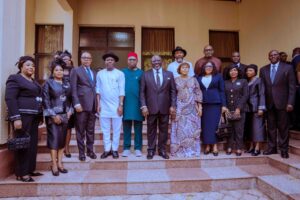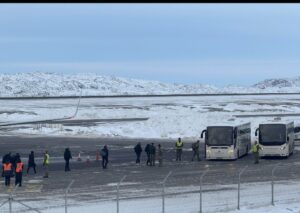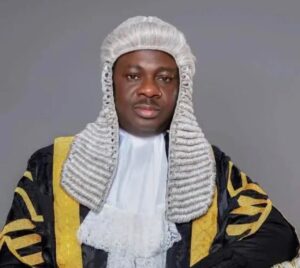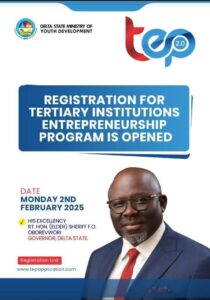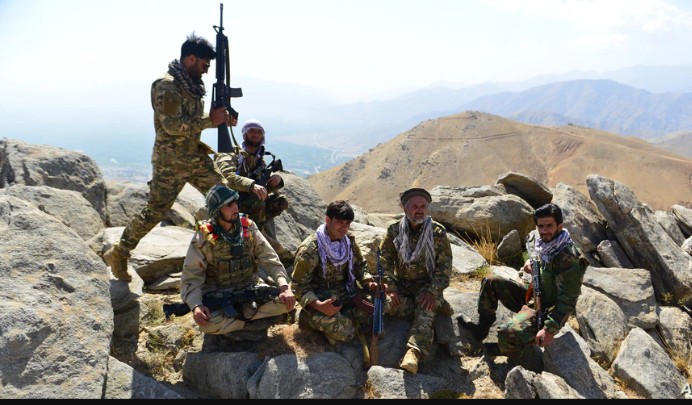
Anti Taliban resistance forces
By Jon Egie with agency report
ISLAMABAD – Heavy fighting has started between Taliban fighters and anti-Taliban resistance forces based in the Panjshir valley after talks between the two sides failed to resolve their differences.
A resistance spokesman claims a Taliban offensive was repulsed with the Taliban suffering heavy losses.
The resistance is led by Ahmad Masood, son of well-known anti-Taliban resistance leader from the 1990s, Ahmad Shah Masood.
The elder Masood, who led the Northern Alliance against the Taliban, was killed by al-Qaida militants posing as journalists just before the September 11, 2001, attacks on the United States.
After the fall of Kabul last month, members of the Afghan security forces from across the country who felt betrayed by the surrender of their military leaders made their way to Panjshir to join the resistance. Among them were some of the special forces famous for their battlefield victories against the Taliban over the years as well as the first vice president in the deposed regime, Amrullah Saleh.
Masood’s spokesman, Fahim Dashty, said the Taliban were running offensive operations in the northeast of the valley, in particular from a mountain pass named Khawak, as well as from the southwest from Parwan province.
He claimed the National Resistance Front of Afghanistan (NRFA), as the Panjshir-based group calls itself, had repulsed them inflicting several hundred casualties.
“They have been defeated heavily. The figures that we already have, 150 of them have been killed, around 200 of them have been wounded, 35 of them have been detained, their four convoys have been destroyed as well as two heavy weaponry,” he claimed.
Taliban followers on social media shared video of the group traveling to Panjshir in a caravan of security vehicles with Taliban flags. They claimed the Taliban had taken over several areas previously controlled by the resistance forces.
On Wednesday the Taliban had blocked all traffic on the main road linking Panjshir to neighboring Gulbahar.
Each side blamed the other for the failure of the talks between the two sides.
“We tried very hard that this issue be resolved through talks. We held multiple meetings with the stakeholders of Panjshir. We are also in touch via telephone. However, until now, we have not reached a resolution,” said senior Taliban leader Maulawi Amir Khan Muttaqi in an audio message to the people of Panjshir province circulated by their followers and spokesmen on social media.
Dashty told VOA Tuesday night that the negotiations were intended to result in an inclusive arrangement acceptable to all Afghans, and in which there were guarantees for human rights, including women rights.
The ball is in the Taliban’s court, he said. “The other side, if they want to announce their government, an un-inclusive government, it’s up to them. It will not affect our stance.”
The Taliban have indicated they are close to announcing their new government. A three-day meeting of the Taliban Rahbari Shura, or leadership council, led by Taliban supreme leader Hibatullah Akhundzada, concluded in Kandahar Monday, said Taliban spokesman Zabihullah Mujahid.
Taliban sources also said Mullah Abdul Ghani Brather, the head of the Taliban political team and a deputy of Akhundzada, returned to Kabul after attending the three-day meeting in Kandahar.
While the group has promised inclusivity, so far there are no indications that it has made a power sharing deal with any of the rival political factions in the country.
Muttaqi encouraged the people of Panjshir province to convince their fighters and leaders to lay down their arms and join the Taliban, promising them peace and security.
“We are sending you this message so you can take advantage and join the Emirate. We promise that the Islamic Emirate will be like your home. Under our govt your life, honor, and property will be safe,” he said.
He added that the Taliban had announced a general amnesty and Panjshir did not need to fight.
Dashty, meanwhile, said on a WhatsApp group recently set up by NRFA, “the war is going on … and our forces are fully prepared.”
A former head of the Taliban political office based in Doha, Qatar, Sayed Mohammad Tayeb Agha, called on the Taliban to avoid a monopoly on power.
In a letter to the Taliban leadership, Agha said an isolationist policy could have negative consequences for the group.
He also encouraged the Taliban to prioritize professionalism in the new government and hire professionally sound employees of the former government. Agha called on the Taliban to accept all international norms not in conflict with Islam.
Taliban forces swept into Kabul on August 15 after running an offensive across the country in which all provincial capitals fell to them within 10 days. Since then, the group has repeatedly announced a general amnesty for former enemies, including members of Afghan security forces who fought against them for decades.
However, sporadic reports of Taliban fighters searching for former government or intelligence officials, coupled with a trust deficit accumulated over decades of war, led to a panic among the population, especially women’s rights activists, journalists, and those who were part of the former government.

